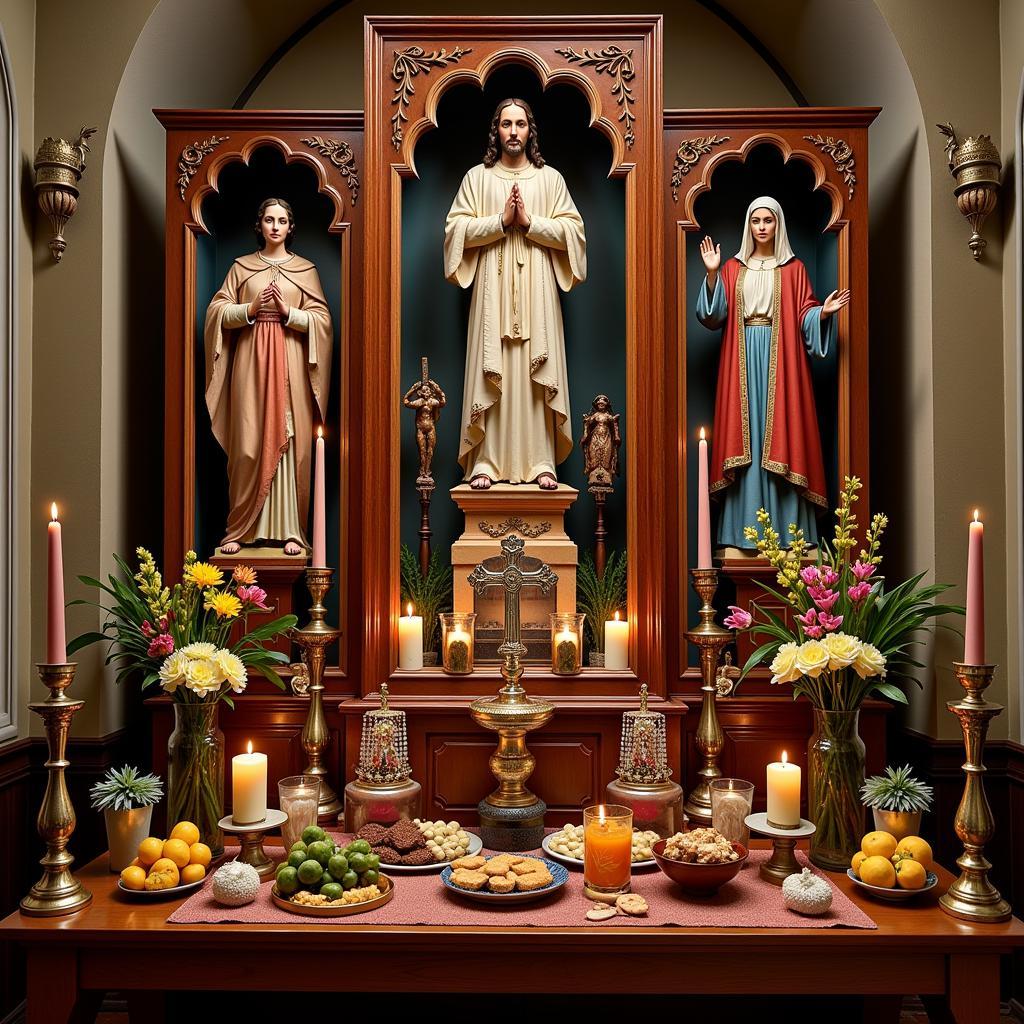African Influence on Religion in the Caribbean
The transatlantic slave trade brought a forced migration of Africans to the Caribbean, profoundly shaping the cultural landscape, including religious practices. While the enslaved were often converted to Christianity, African Influence On Religion In The Caribbean manifested in unique syncretic faiths and subtle retentions of traditional beliefs. These enduring influences continue to shape the Caribbean religious experience today.
Roots of Resilience: African Religions Before the Crossing
Understanding the African influence on Caribbean religion requires acknowledging the rich tapestry of traditional African religions. These diverse belief systems shared common threads:
- Ancestral Veneration: Reverence for ancestors who served as intermediaries between the living and the divine.
- Spirituality Infused in Daily Life: A holistic worldview where the spiritual and material worlds intertwined.
- Oral Traditions: Passing down beliefs, rituals, and moral codes through storytelling, songs, and proverbs.
- Importance of Music and Dance: Integral elements of religious ceremonies, fostering communal connection and spiritual ecstasy.
 African Religious Ceremony
African Religious Ceremony
These core tenets of African spirituality, though challenged by the brutality of slavery, found ways to persist, adapting and fusing with other religious influences in the Caribbean.
Syncretism: The Blending of Beliefs
Unable to openly practice their traditional faiths, enslaved Africans found ways to merge elements of their beliefs with the dominant religion imposed upon them – Christianity. This led to the emergence of syncretic religions, most notably:
Santería (Cuba)
Originating in Cuba, Santería blends Yoruba deities (Orishas) with Catholic saints. Practitioners venerate the Orishas, seeking their guidance and intervention in daily life.
Vodou (Haiti)
Vodou, prominent in Haiti, combines West African spiritual traditions, particularly from the Fon and Ewe peoples, with Catholicism. It emphasizes a complex relationship between the spirits (Lwa) and the living.
Obeah
Practiced throughout the English-speaking Caribbean, Obeah draws upon West African spiritual traditions, often focusing on harnessing spiritual forces for healing, protection, and, in some instances, inflicting harm.
 Santería Altar
Santería Altar
These syncretic religions provided solace and spiritual empowerment for the enslaved, allowing them to maintain a connection to their ancestral heritage while navigating the oppressive conditions of slavery.
Subtle Survivals: African Traditions in Caribbean Christianity
Beyond the formalized structures of syncretic religions, African influence on religion in the Caribbean also manifests in more subtle ways within Christian practices.
- Music and Movement: The call-and-response singing, rhythmic clapping, and spirited dancing found in many Caribbean churches resonate with the vibrancy of traditional African religious ceremonies.
- Spirit Possession: The belief in spirit possession, central to many African traditions, finds expression in charismatic Christian practices where individuals are believed to be filled with the Holy Spirit.
- Emphasis on Healing and Deliverance: The focus on spiritual healing and deliverance from evil found in many Caribbean Christian denominations aligns with the importance placed on spiritual well-being in traditional African beliefs.
These enduring threads of African spirituality woven into the fabric of Caribbean Christianity demonstrate the resilience of cultural heritage in the face of adversity.
A Legacy of Spiritual Richness
The African influence on religion in the Caribbean is undeniable. It is a testament to the strength and adaptability of African spiritual traditions that, despite attempts to eradicate them, they not only survived but thrived, merging and co-existing with other faiths. This fusion of beliefs continues to shape the Caribbean’s diverse and vibrant religious landscape, making it a fascinating area of study for understanding the complexities of cultural exchange and religious syncretism.

